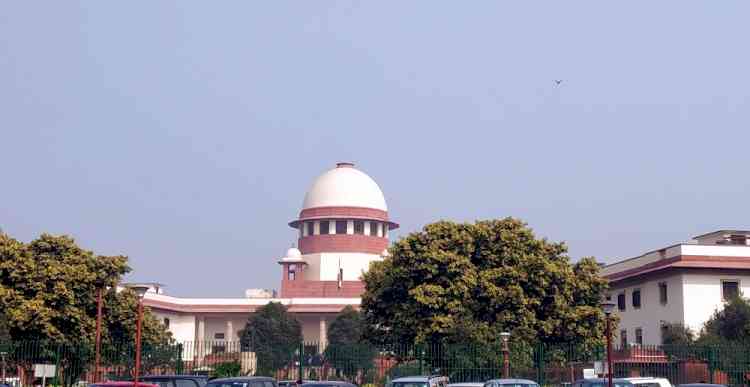Can't detain person on possible apprehension of breach of law, order: SC

New Delhi: The Supreme Court on Monday observed that a possible apprehension of breach of law and order cannot become a ground to detain a person under a preventive detention law, as it rejected the contention that a liberal meaning must be given to the expression "public order" in the context of such a statute.
A bench of Justices R.F. Nariman and Hrishikesh Roy said: "It is clear that at the highest, a possible apprehension of breach of law and order can be said to be made out if it is apprehended that the detenu, if set free, will continue to cheat gullible persons."
It noted this may be a good ground to appeal against the bail orders granted or to cancel bail but certainly cannot provide the springboard to move under a preventive detention statute.
The bench pointed out that mere contravention of law such as indulging in cheating or criminal breach of trust certainly affects "law and order", but before it can be said to affect "public order", it must affect the community or the public at large.
The Telangana government counsel argued that the detenu was a habitual fraudster who had created fear amongst the gullible public, and since he was likely to commit similar offences in future, it was important to preventively detain him, as the ordinary law had no deterrent effect on him.
The bench said while it cannot seriously be disputed the detenu may be a "white collar offender" as defined under the Act, yet a preventive detention order can only be passed if his activities adversely affect the maintenance of public order.
It noted that detention order would makes it clear that it is not based on any apprehension of widespread public harm, but the detenu was successful in obtaining anticipatory bail from the courts.
The bench observed to argue that a liberal meaning must be given to the expression "public order" in the context of a preventive detention statute is wholly inapposite and incorrect.
"On the contrary, considering that preventive detention is a necessary evil only to prevent public disorder, the court must ensure that the facts brought before it directly and inevitably lead to a harm, danger, or alarm or feeling of insecurity among the general public or any section thereof at large," said the top court in the 30-page judgment.
It made these observations while quashing a detention order passed against a person under Section 3 (2) of the Telangana Prevention of Dangerous Activities Act. The detention order was dated September 28, 2020 and it was connected with five FIRs that have been filed against the person, under Sections 420, 406 and 506 of the IPC. The accused's wife moved the top court challenging the high court order, which did not quash the detention order.


 IANS
IANS 








